Patrimoine : la décolonisation par l’art
- Par Rita DIBA
- 28 Apr 2022 10:50
- 0 Likes
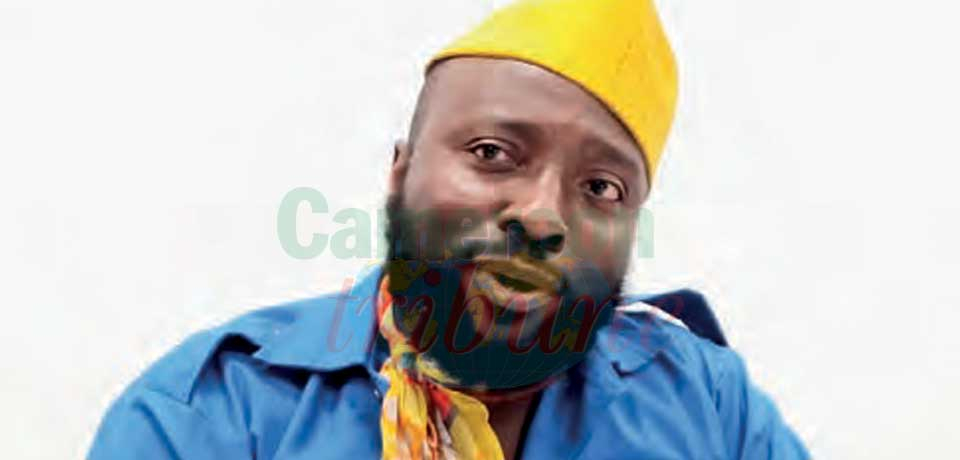
Objectif du projet international lancé au Cameroun et porté par le Dr Bonaventure Ndikung et l’espace Savvy de Berlin.
L’actualité du Dr Bonaventure Soh Bejeng Ndikung est plutôt chargée. Déjà, en tant que directeur artistique de la 12e édition des Rencontres de Bamako, il est en pleine préparation de cette importante biennale africaine de la photographie prévue du 20 octobre au 20 décembre 2022. Il n’aura pas le temps de souffler que dès le 1er janvier 2023, il devra prendre les rênes de la Maison des Cultures du monde à Berlin, en Allemagne. Une nomination de directeur intervenue en juin 2021. Et entre tous ces projets, le fondateur et directeur artistique de Savvy Contemporary, basé à Berlin, était sur sa terre d’origine, le Cameroun, pour un séjour entre mars et avril 2022. L’objet de sa venue, le lancement et la mise en œuvre d’un projet international dont la finalité est, à travers des échanges, réflexions, laboratoires d’idées, recherches, initiatives de développement, de donner naissance à une Afrique qui définit ses propres systèmes de pensée et échelles de valeurs. Un projet dont l’intitulé complet est : « Unraveling the (Under)Developement Complex ; or Towards a Post-(Under)Development Interdependence – An Ode to Walter Rodney’s How Europe Underveloped Africa – 50 Years On – 1972-2022 ». Le concept est porté par Savvy, en collaboration avec d’autres centres d’art et de réflexion sur le continent. Il s’agit pour le monde de l’art d’aller à la rencontre des univers de la technologie, du design, de la pensée, et sur une période de 18 mois à travers l’Afrique, de s’interroger sur l’idée du développement telle qu’elle a été imposée au continent noir et de trouver d’autres pistes pour exister et coexister au-delà de ladite idée. Une notion d’indépendance africaine chère à Bonaventure Ndikung depuis des années, lui qui à travers la création de Savvy en 2009, avait à l’esprit de créer un lieu de représentativité et de visibilité pour les expressions artistiques non-occidentales, pratiquement inexistantes dans l’espace public.
What is the idea behind the creation of Savvy Contemporary?
I went to Berlin (Germany) in the mid-nineties and I had the impression that there was hardly space for people like us, people from the non-West in general, those of us that were not European or look like Europeans. So it was important as a starting point to create a space in which we could come together and challenge the norms, challenge nationalist, racial, tribal norms. And how do we actually create a space in which artists can come with their works and express themselves to the concerns of the world. And at the end of the day, how can we live better together. So Savvy was created in 2009. It is an art space, a meeting point. We do exhibitions, a lot of performances, poetry, music and so on. But at the same time art is life. So we are thinking about life. It is a space for critical thoughts. A space in which we ask important sociopolitical, socioeconomic questions. Human are political beings so it is important to boost questions to be able to understand how society functions. And also, one of our questions is what kind of spaces can we claim. There is a kind of almost a terror of knowledge and to be able to talk within certain spaces, you have to master certain kind of philosophies. It will have to be Michel Foucault, some French or British philosopher. We say no. We want to talk from the point of view of Mongo Beti. It is rethinking the politics of referencing. Who are the footnotes in your essay, who are your references?
You were in Cameroon for the launching of the project, “Unraveling the (Under) Development complex”. What is this concept about exactly?
The project is a tribute to Walter Rodney, a Guyanese historian, political activist and academic assassinated in 1980, and to the book he published in 1972. And the book was titled “How Europe underdeveloped Africa”. It is a fundamental book. It starts by defining development. He says basically every culture is developed but some people come, the colonial enterprise with their colonial project, they say you are not developed, your language, your religions, your currency are not developed…What does that mean? What he is trying to show on the book is that in this categorization of developed and underdeveloped, the person who is calling you underdeveloped is actually living from you. He is feeding from you. The person who calls himself developed does not have any resource and he is taking yours. What kind of thing is that? It’s not balanced. The second thing is that the way development is defined and is structured with all, for example the International Monetary Fund, it is mainly for you to stay underdeveloped. So there is this kind of dependency structures that have been put in place. And the question is: fifty years after writing this book, who has read it. How have we implemented it? Another important point in the project is how we move beyond this question of development and underdevelopment. What if we no longer use these words? But think, beyond questions of progress, as a raise. We think of solutions to our problems. Not taking...
Cet article complet est réservé aux abonnés
Déjà abonné ? Identifiez-vous >
Accédez en illimité à Cameroon Tribune Digital à partir de 26250 FCFA
Je M'abonne1 minute suffit pour vous abonner à Cameroon Tribune Digital !
- Votre numéro spécial cameroon-tribune en version numérique
- Des encarts
- Des appels d'offres exclusives
- D'avant-première (accès 24h avant la publication)
- Des éditions consultables sur tous supports (smartphone, tablettes, PC)






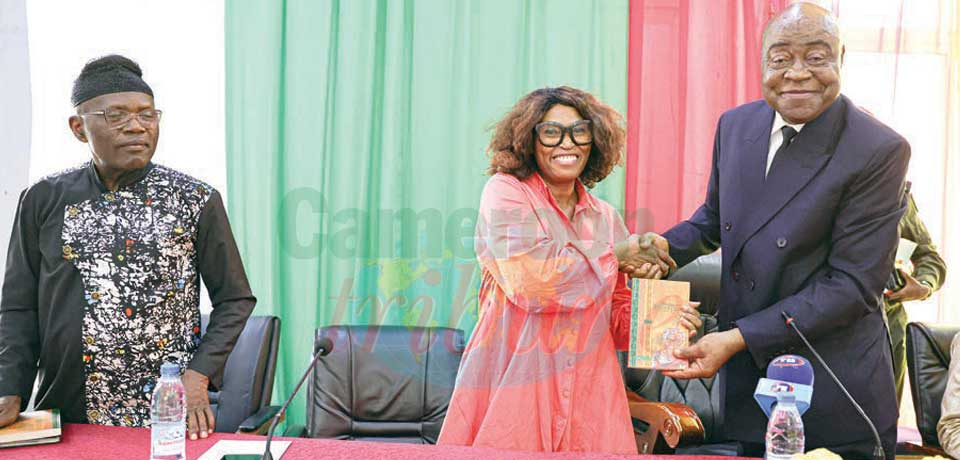
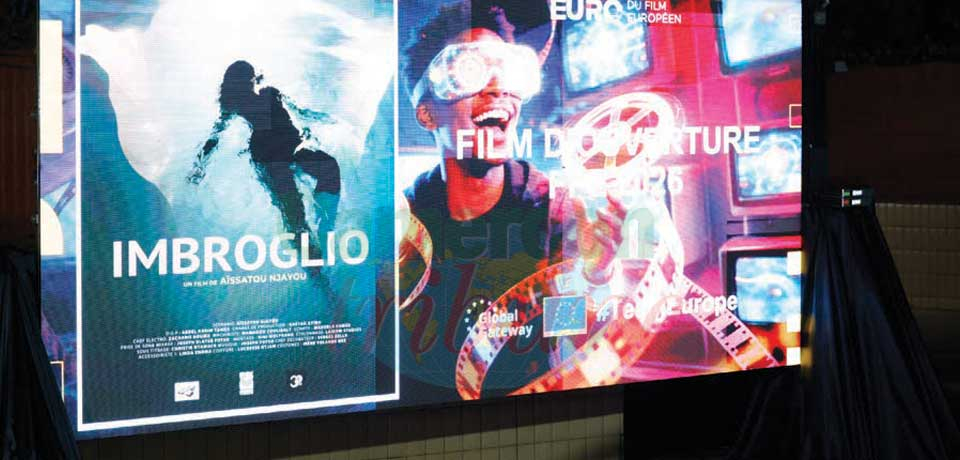
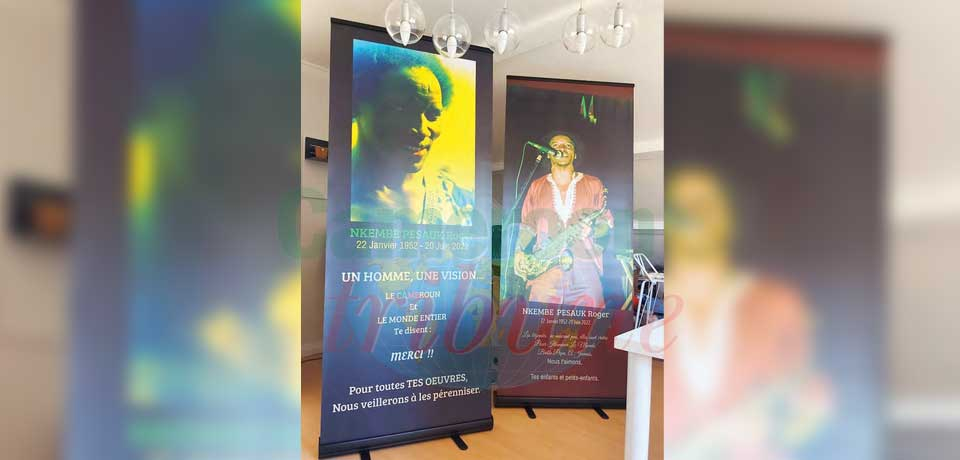
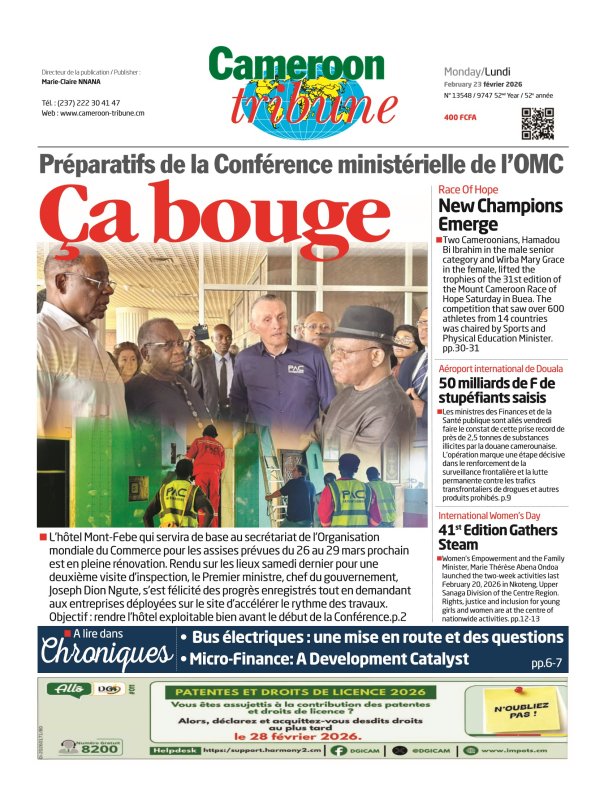




Commentaires